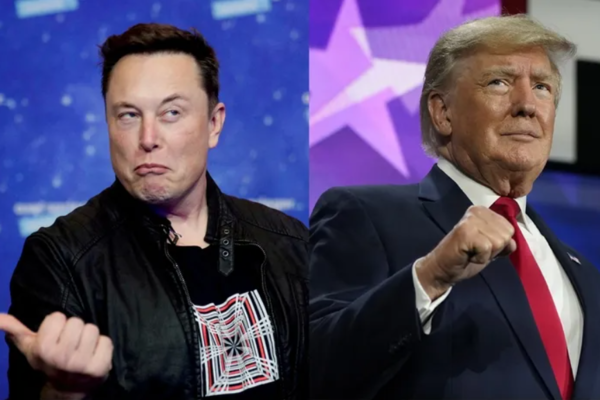
WASHINGTON D.C. - President Donald Trump indicated on Thursday that the unconventional partnership between his administration and tech mogul Elon Musk is nearing its conclusion, suggesting Musk is likely to depart his advisory role "within a few months." Speaking to reporters aboard Air Force One, President Trump acknowledged Musk's "fantastic" contributions while noting the demands of his extensive business ventures.
"Elon is fantastic, but he has many companies to run," President Trump stated. "I want him to stay as long as possible, but there will come a point where he has to leave."
Musk has spearheaded the President's Government Efficiency division, known as DOGE, tasked with streamlining and reducing the size of the federal government. While President Trump assured that the work initiated by DOGE would continue within various agencies, his remarks strongly suggest a shift in the administration's approach to government reform.
The President's comments follow weeks of speculation regarding the duration of Musk's involvement. Adding to the narrative of a potentially waning influence, Musk recently experienced a political setback in Wisconsin, where his endorsed Supreme Court candidate was defeated despite significant personal financial contributions and campaign appearances. Simultaneously, Musk's electric vehicle company, Tesla, has reported a 13% drop in sales for the first quarter of the year.
While the White House has not announced a specific date for DOGE's closure, sources suggest the initiative may be winding down ahead of its originally projected July 2026 completion date. Evidence of this shift includes the reassignment of DOGE staff to various federal agencies, signaling a decentralization of the cost-cutting efforts. Government-wide layoffs are reportedly underway as part of the broader efficiency drive championed by Musk and President Trump.
President Trump himself alluded to this transition last week, stating, "Over the next two to three months, we'll be pretty satisfied with the people who want to work hard and be part of the administration," implying a consolidation of his core team.
The anticipated scaling back of DOGE's operations does not necessarily signal an end to President Trump's ambition to reshape Washington. However, the administration's efforts appear poised to enter a new phase with less reliance on Musk's direct involvement. Musk's tenure as a high-profile advisor, marked by his aggressive approach to government spending, has been a source of considerable political debate.
Originally envisioned as an independent advisory panel co-led by Vivek Ramaswamy, DOGE transitioned into a governmental entity after Ramaswamy's departure to pursue a gubernatorial bid. Populated by Musk's allies, the division dispatched personnel across the bureaucracy with a mandate to cancel contracts, access sensitive data, and implement cost reductions.
Musk's role as a "special government employee" carries a built-in time constraint, limiting his service to 130 days within a 365-day period. While Musk optimistically stated in March his belief that DOGE could achieve significant deficit reduction within this timeframe, the organization's own calculations have fallen considerably short, drawing criticism for being overstated.
The exact timeline of Musk's departure remains unclear, as does the administration's method for tracking his service days. May 30th will mark 130 days since President Trump's inauguration.
Despite previously expressing his desire to retain Musk's expertise for as long as possible, President Trump's recent remarks suggest an acceptance of the inevitable conclusion of Musk's current role. He lauded Musk as a "very talented guy" and a "patriot."
Looking ahead, President Trump indicated that cabinet secretaries will assume greater responsibility for the efficiency initiatives, stating that "the secretaries will fully take over," though he maintained that "DOGE will continue to function." This represents a slight shift from his comments earlier in the week, where he suggested some DOGE personnel might remain embedded within agencies.
The political implications of Musk's involvement were recently highlighted in Wisconsin, where his endorsed Supreme Court candidate, Brad Schimel, was defeated by Susan Crawford. Democrats reportedly believe they successfully leveraged Musk's lower approval ratings in the state. Following the defeat, Musk, who had previously described the election as critical for "the future of civilization," adopted a more pragmatic tone, acknowledging the loss as a potentially necessary step towards broader goals.
[Copyright (c) Global Economic Times. All Rights Reserved.]




























